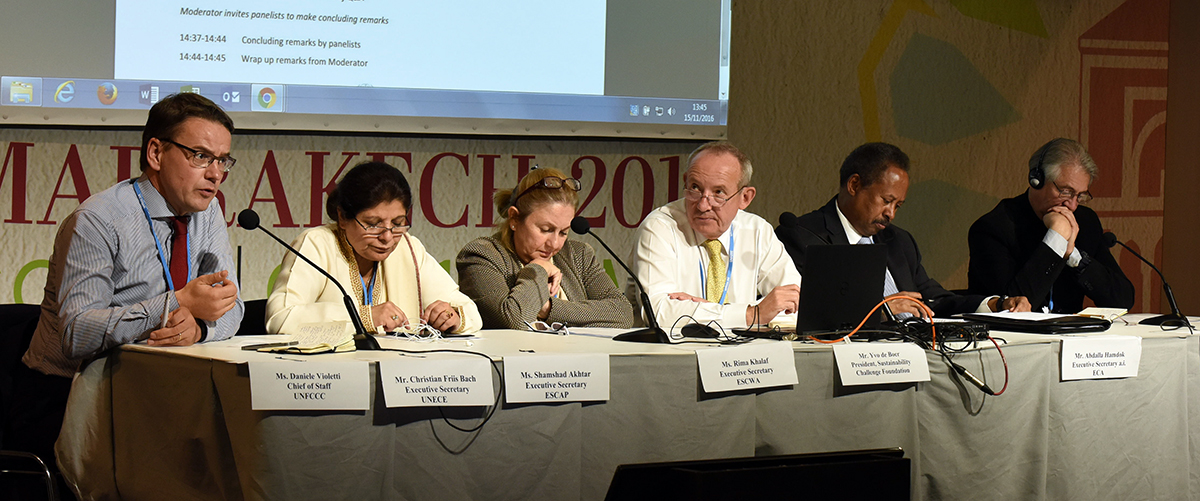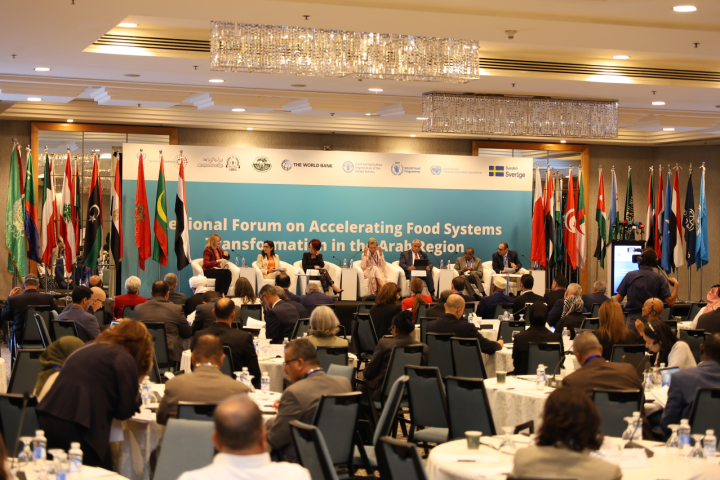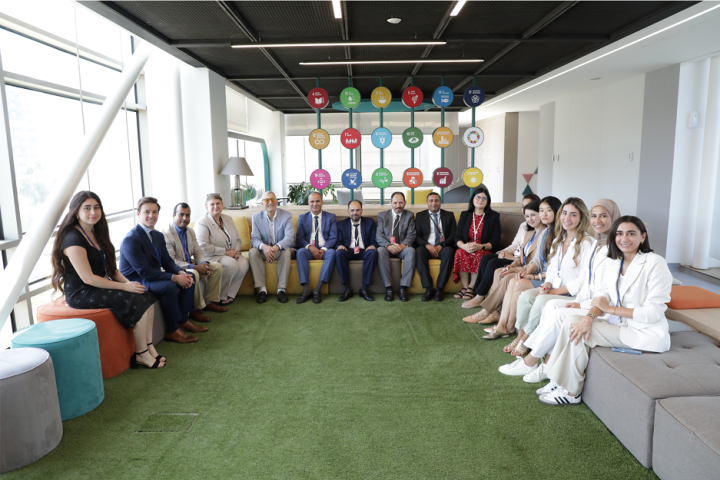On 15 November 2016, ESCWA took part in a joint United Nations regional commissions roundtable held on the sidelines of the twenty-second session of the annual Conference of the Parties (COP 22), the supreme decision-making body of the UN Framework Convention on Climate Change taking place in Marrakech, Morocco between 7 and 18 November 2016.
ESCWA Director of Sustainable Development Policies Division Roula Majdalani, representing ESCWA Executive Secretary Rima Khalaf, joined representatives from the UN regional commissions; non-governmental organizations (NGOs); and UN agencies to discuss integrated solutions for the regional implementation of the 2030 Agenda on climate action.
Majdalani said, “Arab Governments are strongly committed to the implementation of the Paris Agreement, and they do realise the need to ensure its coherence with the 2030 Agenda and the other major global processes.” However, “despite such a commitment, the implementation of the Paris Agreement and the 2030 Agenda will be affected by three main factors: regional instability, the implementation of global commitments, and national capacities to deliver on climate action,” she added.
Majdalani noted that Arab countries, like many others, will face technical difficulties in the implementation of the Paris Agreement and the Sustainable Development Goals (SDGs). She said, “ESCWA has recently conducted a preliminary assessment of data available for monitoring the 17 SDGs. Findings reveal major data gaps in 12 goals, such as those related to poverty, inequality, innovation and infrastructure, and significant problems related to data disaggregation. Hence a major focus of our programme is to build the capacity of national statistical offices to help them collect new statistics and improve the quality of the data produced.”
Majdalani concluded, “Through our knowledge products and technical assistance we aim to help our countries deliver on their commitments to the international community and more importantly to their own peoples... Not much can be achieved if foreign occupations are not brought to an end and if conflicts are not speedily resolved in a just and equitable manner.”
Photo by IISD/ENB | Mike Muzurakis
News
17 Nov 2016
Beirut-Marrakech
ESCWA Highlights Regional Implementation of 2030 Agenda on Climate Action




